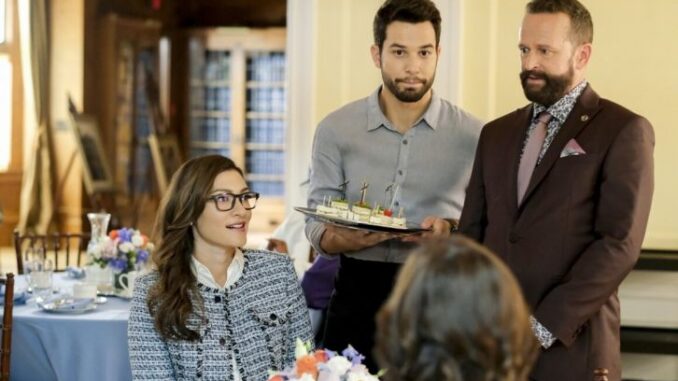
The Measured Cadence of Evolution: Skylar Astin Reflects on So Help Me Todd and Future Projects
Skylar Astin occupies a unique space in Hollywood, a charming blend of boy-next-door affability and undeniable stage presence. For many, his infectious smile and resonant voice are forever linked to the collegiate harmonies of Pitch Perfect, a role that cemented his place as a beloved musical talent. Yet, as actors evolve and careers mature, the pursuit of new challenges becomes paramount. His recent reflections on his tenure in the CBS legal dramedy So Help Me Todd and his aspirations for what lies ahead offer a fascinating glimpse into an artist thoughtfully navigating his professional landscape, charting a course defined by growth, versatility, and a deeper engagement with his craft.
For two seasons, Astin anchored So Help Me Todd as Todd Wright, a disgraced private investigator reluctantly working for his formidable attorney mother, Margaret (played by the incomparable Marcia Gay Harden). This role was a deliberate, and successful, pivot from the musical theatre roots and youthful exuberance that had defined much of his earlier work. Todd wasn't a musical prodigy or a collegiate crooner; he was a slightly disheveled, fiercely intelligent, and often exasperating character, navigating complex family dynamics and the rigorous cadence of network procedural television.
Astin’s reflections on the show are imbued with a sense of appreciative realism. He speaks of the demanding pace of network production, a relentless schedule that requires stamina and adaptability. This isn't the indie film set or the broadway stage; it’s a machine designed for efficiency. Yet, within this structure, he found immense satisfaction. He often highlights the joy of developing a character over multiple seasons, allowing Todd to grow, stumble, and mature in real-time. The unique mother-son dynamic with Marcia Gay Harden was a particular source of creative energy, a masterclass in comedic timing and emotional depth. He speaks of their shared scenes not just as lines delivered, but as a genuine rapport, a dance of wit and vulnerability that elevated the material. The bittersweet end of the series, while certainly a moment of reflection on what was, also clears the decks for what could be, freeing him from a consistent commitment and opening new doors.
The significance of So Help Me Todd for Astin’s career cannot be overstated. It allowed him to showcase a different facet of his acting repertoire. While his comedic timing, long evident, found ample opportunity to shine, the role also demanded a more grounded, nuanced performance. Todd Wright had flaws, anxieties, and a complex relationship with his past, inviting Astin to explore a broader range of human experience beyond the archetypal leading man. It subtly, yet firmly, detached him from the singular association of musicals, proving his capability to carry a non-singing, prime-time network show with gravitas and charm. It was a conscious step towards diversification, an illustrative example of an actor taking control of his narrative.
Looking forward, Astin's reflections reveal an ambition for even greater creative expansion. While he never shies away from acknowledging the profound impact of Pitch Perfect, he expresses a clear desire to continue pushing boundaries. The landscape of future projects, as illuminated by his thoughts, suggests a yearning for roles that are more challenging, perhaps even less conventionally "charming." One senses a desire to delve into grittier characters, to explore the complexities of human nature in independent cinema, or to lend his voice and presence to narratives that resonate on a deeper, more personal level. There's also the tantalizing possibility of a return to the stage, perhaps not just as a performer, but with a renewed perspective, armed with the wisdom gained from years in front of the camera. The pursuit of creative agency, whether through producing, or even directing, also seems to be a quiet undercurrent in his forward-thinking mindset.
What truly elevates these reflections is the insight they offer into Astin himself. He comes across as thoughtful, grounded, and genuinely appreciative of every opportunity. There's no sense of entitlement, but rather a diligent focus on the work itself. His career trajectory isn't one of explosive, overnight fame, but rather a measured, consistent ascent, built on talent, professionalism, and a willingness to evolve. His reflections on So Help Me Todd are not just a recap of a job, but a self-assessment of his growth as an artist, a recognition of how each experience hones his craft and informs his aspirations.
From the vibrant a cappella stages to the polished halls of legal drama, Skylar Astin's career has been a masterclass in graceful evolution. His reflections on So Help Me Todd are not merely post-mortems of a completed project, but rather a testament to an ongoing journey of artistic discovery. As he steps into his next act, it is clear that Skylar Astin isn't just seeking new roles; he's crafting a legacy defined by thoughtful artistry and an unwavering commitment to the diverse stories he tells. His future projects promise to be as compelling as his past, illustrating the enduring power of talent guided by intention.
